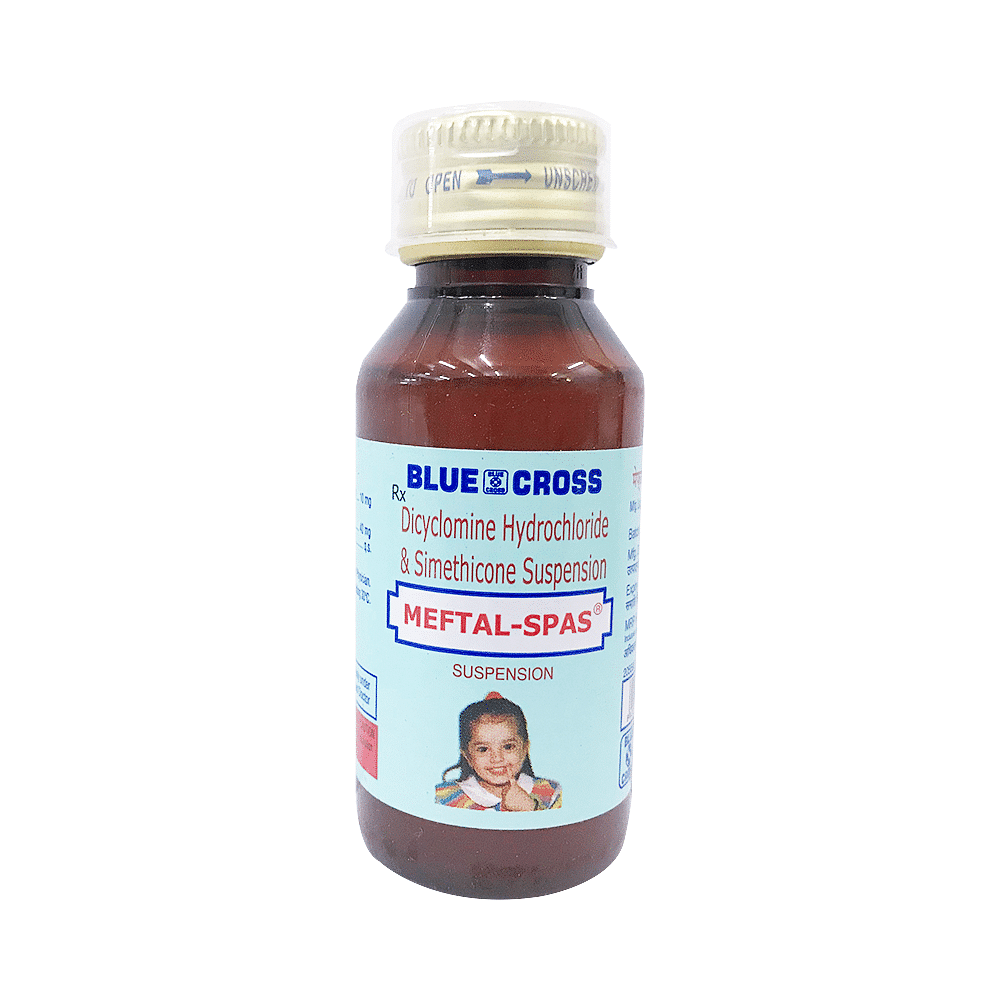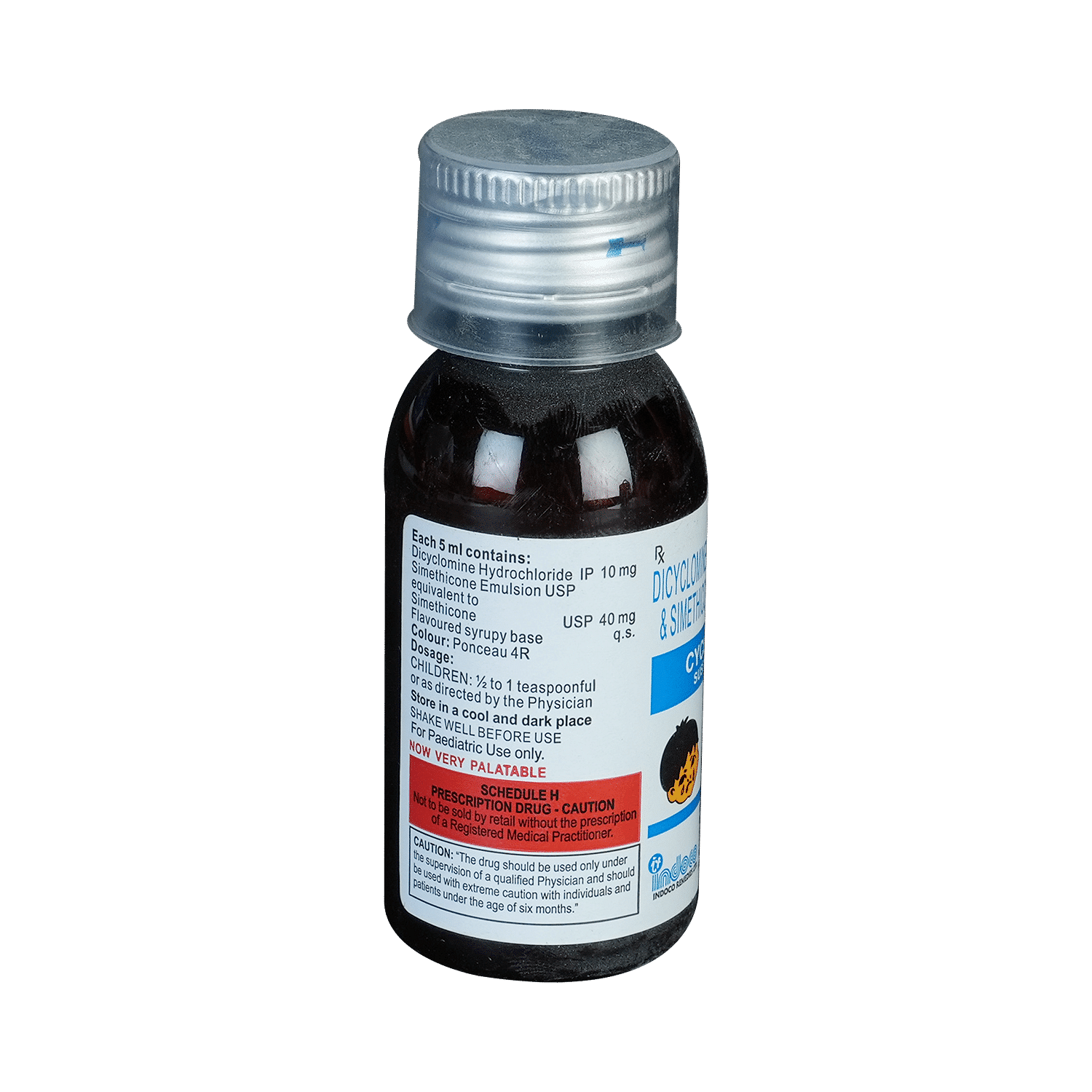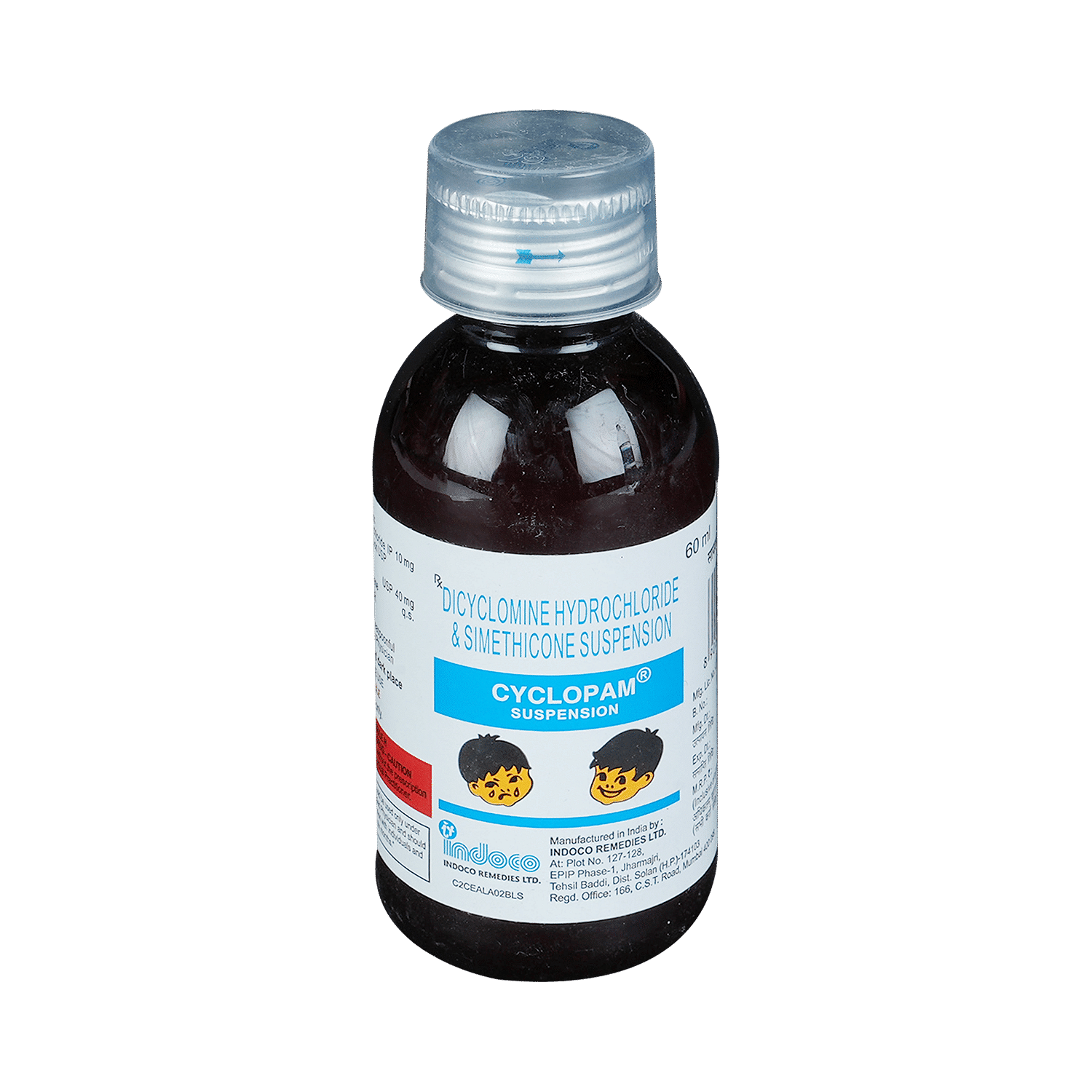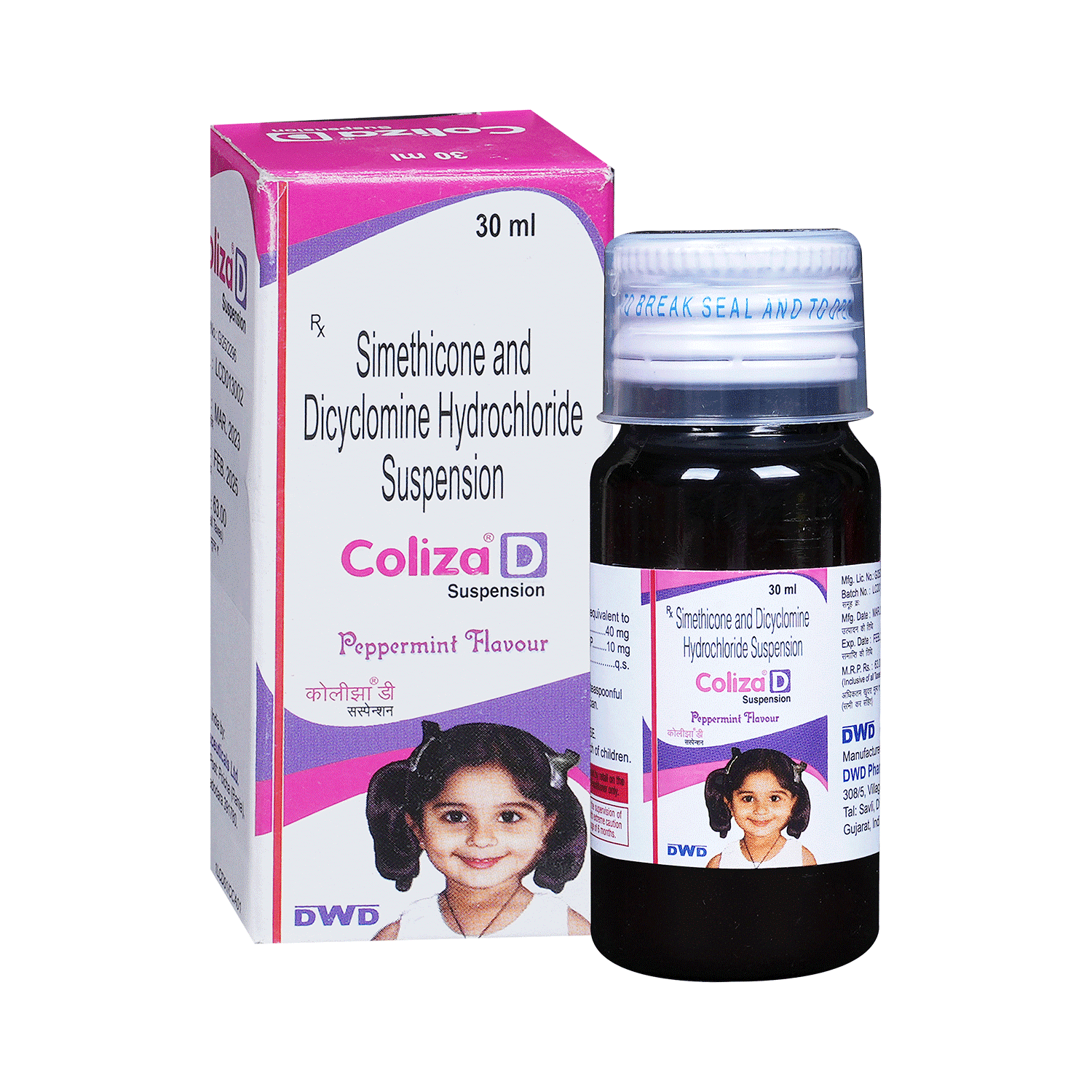
Mefcolic Drop
Manufacturer
Green Cross Remedies
Salt Composition
Dicyclomine (10mg) + Simethicone (40mg)
Key Information
Short Description
Mefcolic Drop is a medication used to treat stomach pain, bloating, and abdominal cramps, as well as symptoms of irritable bowel syndrome.
Dosage Form
Oral Suspension
Introduction
Mefcolic Drop is commonly given to treat stomach pain, bloating, and abdominal cramps, and pain associated with excessive acidity, gas, infections, and gastrointestinal tract diseases. It also controls symptoms of irritable bowel syndrome. It relaxes the muscles of the gut and absorbs the extra gas.
Directions for Use
Inform your doctor if you experience severe or long-lasting pain in your stomach.
How it works
Mefcolic Drop is a mixture of two active medicines Dicyclomine, an antispasmodic agent, and Simethicone, an antifoaming medicine. Dicyclomine works by relaxing the muscles in your stomach and gut (intestine). It stops sudden muscle contractions (spasms) thereby relieving abdominal cramps and pain. Whereas Simethicone disintegrates gas bubbles and allows easy passage of gas.
Quick Tips
Inform your doctor if you experience severe or long-lasting pain in your stomach. Give your child a diet that is rich in fiber and low in fermentable sugars. Avoid giving gas-producing foods to your child such as beans, onions, carrots, raisins, and bananas. Encourage your child to exercise daily as it has potential benefits in constipation and in improving overall wellbeing. In children less than 2 months of age, do not give Mefcolic Drop without ruling out the reasons that might be making your child cry. Give Mefcolic Drop only if your child shows actual signs of abdominal discomfort or pain after consulting your child’s doctor.
Related Medicines

Meftal-Spas Suspension

Cyclopam Suspension

Cyclopam Suspension

Spasact Oral Suspension

Deltaspas Oral Suspension

Fitnic SPAS Oral Suspension

Decolic Oral Suspension

Spasif Oral Drop

Coliza D Suspension Peppermint

Acepam Oral Suspension
Frequently asked questions
My child is experiencing abdominal pain along with nausea, vomiting, and sensitivity to light. Is Mefcolic Drop appropriate for this condition?
Abdominal pain, nausea, vomiting, and sensitivity to light can be symptoms of abdominal migraines, characterized by recurrent episodes of dull and moderate to severe abdominal pain lasting at least six months. These can occur in the midline or with poorly defined localization. It's important to rule out potential causes before administering Mefcolic Drop as it might not be appropriate for every case.
What kind of tests should I get if my child has abdominal pain?
Your doctor may recommend an abdominal ultrasound as a routine examination. For severe cases, endoscopy and esophageal pH monitoring may also be necessary to assess the underlying condition.
If a medical condition is present that could hinder the use of Mefcolic Drop, what should I do?
Mefcolic Drop should not be given in conditions affecting the digestive tract such as obstructive or inflammatory diseases. These include heartburn, unstable cardiovascular diseases, obstructive uropathy, glaucoma, muscle weakness disorders, liver impairment, hyperthyroidism, neuropathy, and kidney impairment.
Can Mefcolic Drop be used alongside other medications?
It's crucial to inform your child's doctor about all the medicines they are taking before starting Mefcolic Drop. This is essential to avoid potential interactions or complications, particularly since some substances may react with Mefcolic Drop.
How should I store Mefcolic Drop?
Mefcolic Drop should be stored in a cool, dry place away from direct sunlight and heat sources. It's essential to keep all medications out of reach and sight of children to prevent accidental ingestion.


